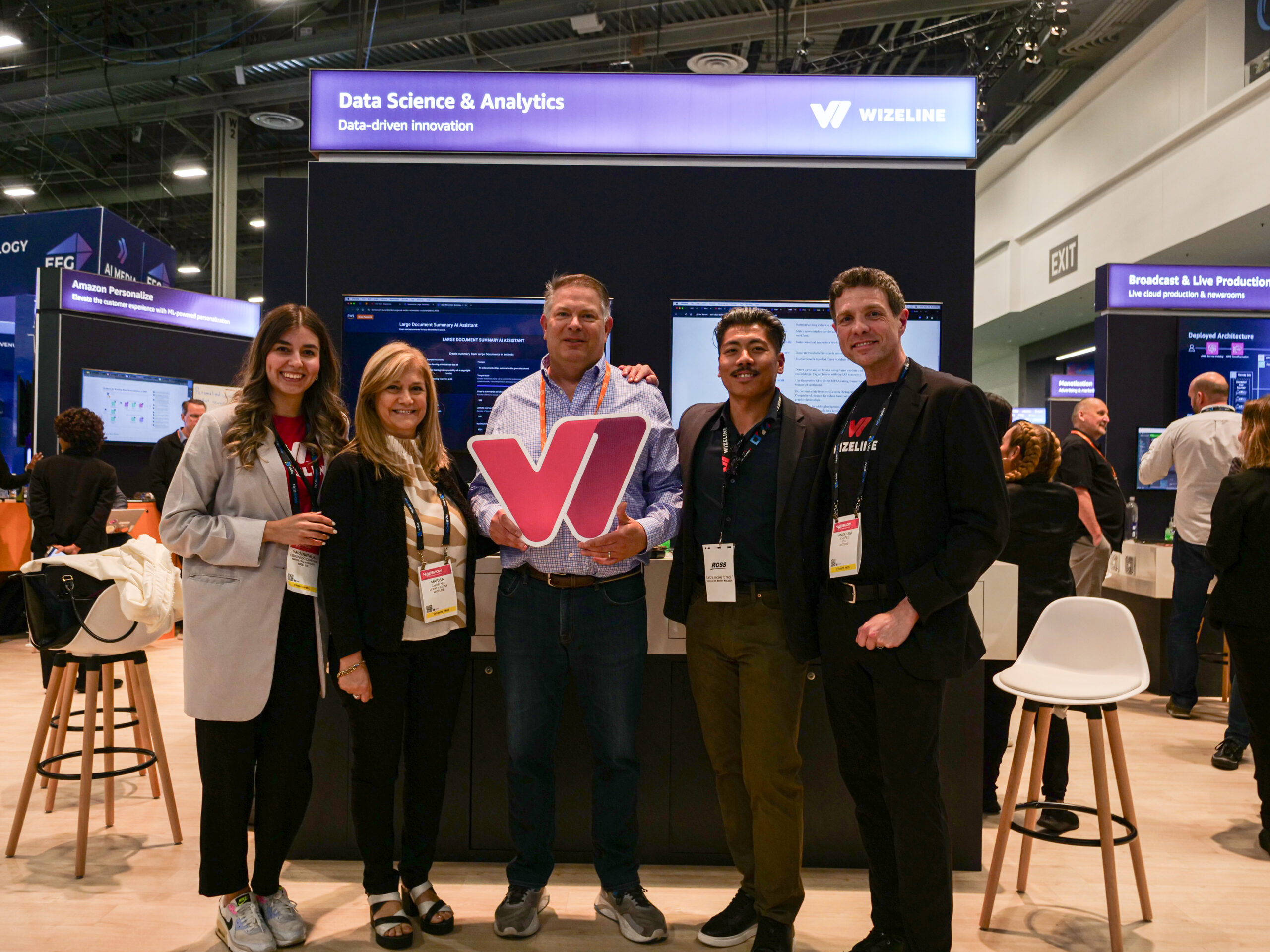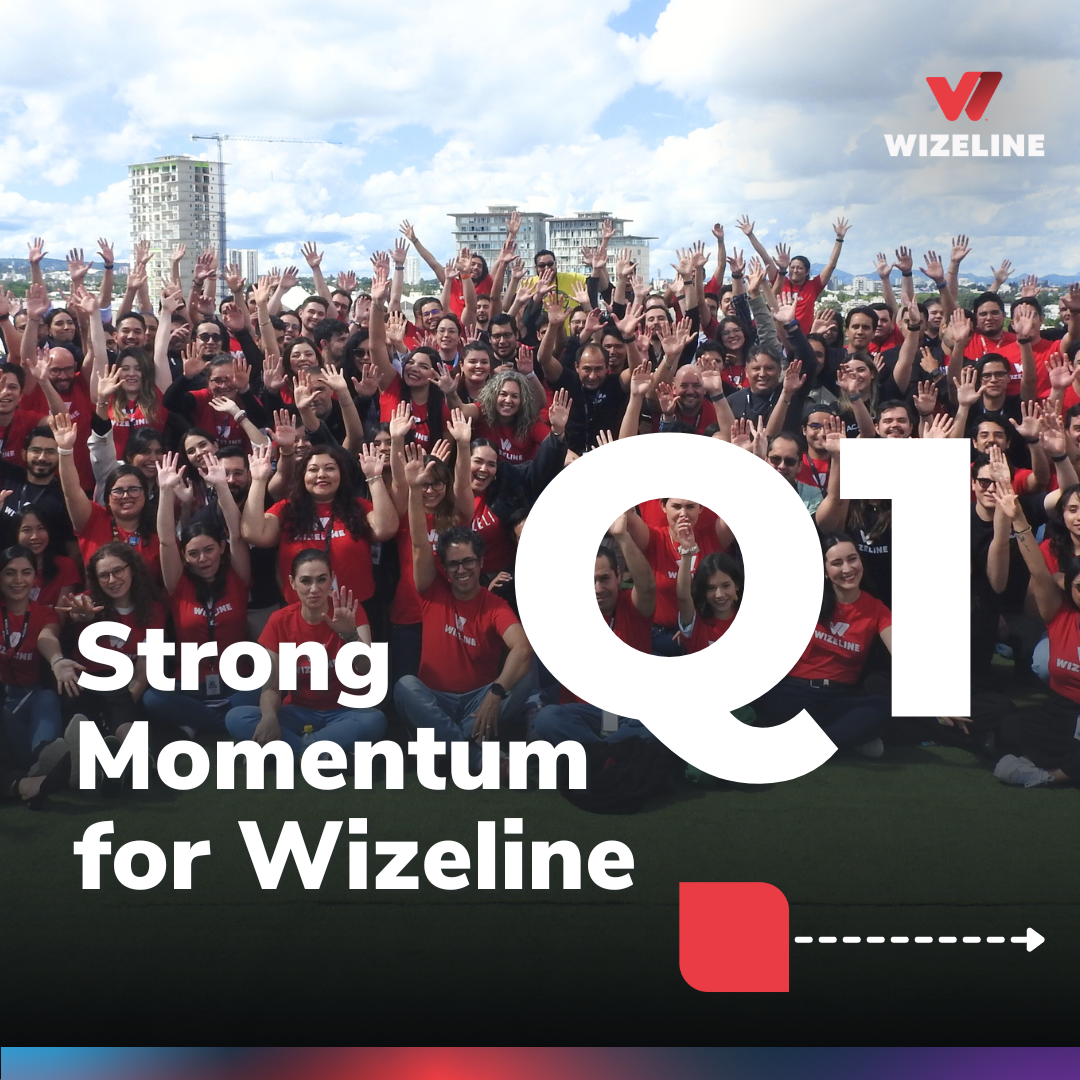Project Us – An AI-powered platform promoting inclusivity in the digital workplace
Developed by researchers at the MIT Media Lab, the platform helps users learn empathetic and inclusive communication practices through actionable, AI-driven feedback that increases self-awareness and promotes user-led experimentation. In November 2022, Wizeline was selected by the Project Us team to pilot the platform in a real-world business setting.
While digital communication has undeniably become a core part of our work and life, it doesn’t necessarily make us better communicators. But it could.
A team of researchers from the MIT Media Lab’s Fluid Interfaces group has developed a platform that can help people become more effective and inclusive communicators – as they run their day-to-day videoconferences.
Project Us uses AI and biosignal processing to provide real-time feedback about communication styles. This individualized feedback can help users develop their communications skills, and organizations make tangible progress toward building inclusive work environments.
The platform analyzes communication habits during videoconferencing calls by capturing a person’s word choice, facial expressions, and tone of voice from the local audio and video setup, operating in parallel with tools like Zoom or Microsoft Teams. Its algorithms then analyze these inputs to derive insights into the emotional and linguistic dynamics of the conversation and provide users with actionable yet fully confidential feedback.
“We wanted to create a technologically enhanced feedback loop that enables meeting participants to be more aware of their emotions and behaviors and train their own empathy muscle,” notes Dr. Camilo Rojas, lead researcher on the project. “It’s 100% a self-growth tool that we hope will empower people to become better leaders, colleagues, and even family members.”
Project Us demonstrated very promising results in early trials. First tested with more than 100 participants here at the Media Lab, the platform proved successful at influencing the emergence of empathetic and inclusive behaviors. These included introspective pausing, asking more questions, using more inclusive language and a more balanced participation to the conversation, as well as overall enhanced emotional dynamics, details of which can be found in two publications (link CHI’22 and DIS’22).
In November 2022, Project Us launched its first real-world pilot with employees at Wizeline, a global technology service provider with 2,000 employees. A key reason the team chose to work with Wizeline was the company’s commitment to diversity, equity and inclusion, as well as the programs they have to further DEI through training programs, earning them a high score from the Human Rights Campaign Foundation’s Workplace Equality Program. In addition, Wizeline Academy, the company’s community-based educational program, offers free in-person and online training that has served more than 1,000 women with STEM bootcamps and leadership training.
The Project Us pilot showed strong results regarding both its impact on behavior and user experience. For some, Project Us offered useful feedback for better understanding and contextualizing areas of improvement. As one Wizeliner put it, “When the tool showed me that I was unknowingly making negative facial expressions during moments of conversation, I actually got it.” For others, the insights proved reassuring: “I’ve always been worried that I speak too much during meetings, but the tool showed that I don’t,” said another participant.
Participants expressed a unanimous desire to continue using the tool in their day-to-day work. In response to this overwhelmingly positive experience, Project Us is now being scaled for adoption throughout the organization.
“As a leading digital and AI consultancy with a robust Diversity & Inclusion DNA, we are excited about the opportunity to use a tool that leverages cutting-edge AI technology to empower our people with an authentic means of continually cultivating an inclusive environment at Wizeline,” said Lin Cherry, Wizeline’s Chief People Officer and Chief Legal Officer. “Collaborating with Project Us on this pilot has been an inspiring experience for our people, and we look forward to the new exciting possibilities the relationship brings.”
Given its unique power to drive empathetic and inclusive behaviors, Project Us is now being deployed in diverse organizational contexts, such as supporting leadership development and conflict resolution, and is being tested for enhancing the effectiveness of telemedicine and mental health interventions. Organizations wishing to collaborate with the Media Lab on ProjectUs can contact camilo@projectus.ai / camilorq@media.mit.edu .
Financial support for ProjectUs comes from the MIT Media Lab, MIT J-WEL, the U.S. National Science Foundation, and the Swiss National Science Foundation.
Originally published at MIT Media Lab
Other Articles

Wizeline Introduces AI.R+ Report: A Deep Dive into Responsible AI-Powered Software Engineering
Read more >>
Wizeline Unveils AI.R+: The Next Generation of Tech Services Powered by Generative AI
Read more >>
Wizeline and HumanThriving.ai Partner to Empower Businesses to Ride the AI Wave with Confidence
Read more >>
Wizeline Showcases Generative AI-powered Live News Segmenter at NAB Show 2024 with AWS
Read more >>
Wizeline Strengthens Leadership Team with Appointment of Andres Angelani to Chief Executive Officer; Founder Bismarck Lepe Becomes Executive Chairman
Read more >>


